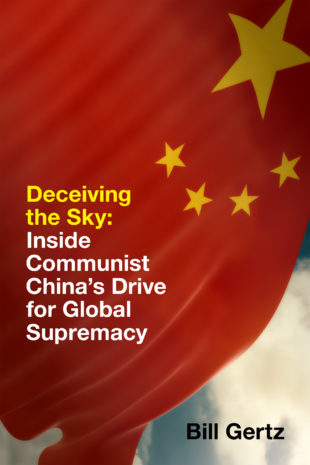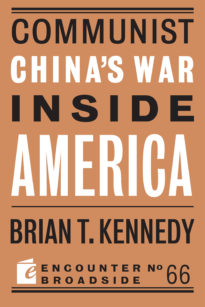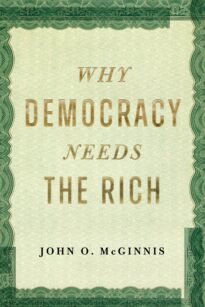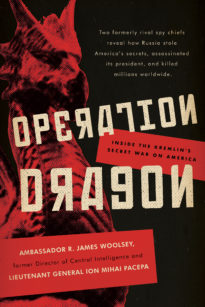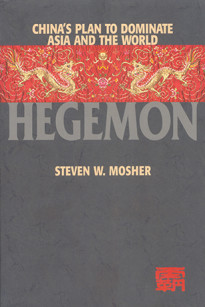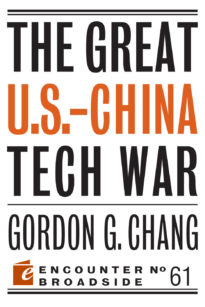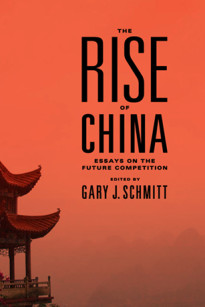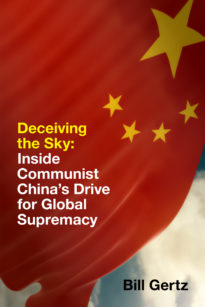“A good defender hides under nine layers of earth; a good attacker moves above nine layers of heaven. Thus he is able to both preserve himself and achieve a complete victory.”
— Sun Tzu, The Art of War
Twenty years ago in 1999, I sat in a windowless briefing room at the Pentagon’s outermost ring inside the offices of the Defense Intelligence Agency (DIA). At the end of the conference table was the DIA director, an Army lieutenant general. After a few minutes, he made an alarming statement: “Bill, China is not a threat.” I asked the three-star general why he believed that. The general, who cannot be identified by name under Pentagon ground rules, replied that the Chinese were not a threat because their leaders declared they were not a threat. I was astounded. That kind of China-is-not-a-threat rhetoric was common at the time from civilian policymakers, and even civilian intelligence officials who for years aggressively played down the danger from what remains a nuclear-armed Communist dictatorship in Beijing. What was surprising was hearing this line of thinking from the nation’s most senior military intelligence official, an influencer who, from his position, exercised enormous power over the defense and national security policies of the US government and military.
The experience was proof that regarding the People’s Republic of China, the highest levels of the US government were uninformed about the threat posed by Communist China and had adopted false ideas and concepts about its system and activities. How a senior military leader with multiple stars on his shoulders honestly believed a state controlled by a Communist Party steeped in the use of strategic deception and armed with nuclear weapons capable of reaching American cities was not a threat truly was shocking.
The DIA director’s incorrect views on China were a reflection of DIA analysts, like Ronald Montaperto, chief of DIA estimates on China in the 1980s, who would be arrested and later would plead guilty passing classified information to two Chinese military attaches. During court proceedings related to his plea agreement, another DIA analyst, Lonnie Henley, would defend his friend Montaperto—not his actions—in a letter to the judge attesting to Montaperto’s character. Henley dominated the US intelligence community’s conciliatory assessments of China for nearly three decades at the DIA and as deputy national intelligence officer for East Asia, and he remained the most senior DIA analyst on China as of 2019.
The experience with DIA was the impetus behind my book The China Threat: How the People’s Republic Targets America released in 2000. The book presented a sharp contrast to the conciliatory, appeasement-oriented assessments of China that were widespread throughout the US government. “The great threat of the twenty-first century,” I wrote, “is the nuclear-armed communist dictatorship in the People’s Republic of China.” The China Threat revealed how the Party ruthlessly ruled over 1.3 billion people—now 1.4 billion—and was prone to miscalculation on a grand scale. I warned that China’s Communist rulers very well could conduct a preemptive Pearl Harbor–like surprise attack on the United States and its allies. Those views were dismissed by establishment elites who mischaracterized the warnings as those of a conservative journalist who lacked an understanding of China. The huge China-watching establishment in government, the intelligence community, part of the military, and throughout the academic and think tank world imposed a ruthless groupthink on all discussion—and government policies—on China. Anyone who disagreed with the dominant view of China as a benign state was attacked politically as a “warmonger” or worse. Unwritten but rigid political litmus tests were imposed on all candidates for government policy positions, both career and political appointees. For speaking truthfully, about the China threat, military careers were cut short.
Time has proven The China Threat correct in its warnings, and many of its recommendations for addressing the problem are being implemented.
By the late 2010s, the policy of unrestricted engagement with China proved to be an utter failure. Instead of a more moderate, more democratic, and more integrated China internationally, the People’s Republic of China emerged as an ever more dangerous threat to peace, security, and two fundamental freedoms—rights and prosperity. Instead, China has reverted to its Maoist Communist roots and has become a more repressive dictatorship domestically as it seeks world domination abroad.
Twenty years after these events of 1999, another DIA director had a far different take. Army Lieutenant General Robert P. Ashley Jr. presented a stark contrast to the ill-fated views of China under previous administrations. Ashley revealed in a DIA report that Communist ideology had not changed as a motivating force for China’s rulers. The revolution that brought the Communists to power in 1949 under Mao—considered among the worst mass murders in history—had driven the Chinese leadership in Beijing to order force against the United States, first in Korea and later when Chinese military forces provided air and air defense support to Hanoi in the Vietnam War.
When People’s Liberation Army (PLA) troops were used to crush the democratic aspirations of thousands of Chinese in Beijing’s Tiananmen Square in June 1989, China was sanctioned, setting off an unbridled campaign over the next three decades to steal and otherwise acquire some of America’s most valuable technology. The theft has been staggering, estimated to be as much as $600 billion annually in stolen technology and intellectual property. “The result of this multifaceted approach to technology acquisition is a PLA on the verge of fielding some of the most modern weapon systems in the world,” Ashley stated in a preface to a DIA report, China Military Power.
How could the DIA have been so wrong for twenty years? A willful blindness had descended over successive American governments—Democrat and Republican alike—that operated on a false assumption: If the United States simply conducted business with China, the Communist regime in Beijing would eventually evolve into a free market, democratic system.
